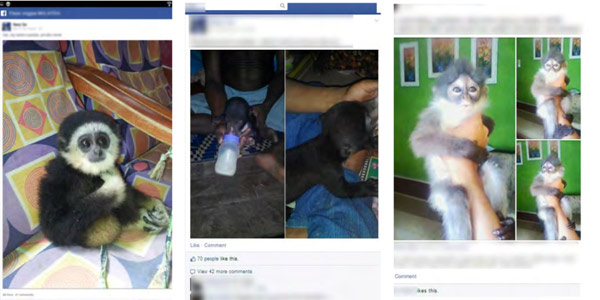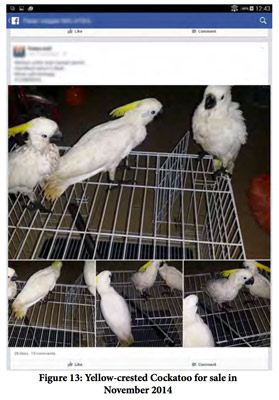Exotic Animals on Social: In Malaysia, the illegal wildlife trade takes place via Facebook.
He is about to end up run over, his mother saves him
Exotic animals: In Malaysia, illegal wildlife trade happens on social networks. A gibbon or an otter, a tortoise or a reptile, a slow lori or even a bear: you can buy them all, from the comfort of your home, thanks to Facebook.
All threatened species and all, in theory, subject to total protection according to Malaysian law and which instead the traffickers do not let slip and rather put on display on their online channels.
This is the complaint triggered by the report by TRAFFIC, the international organization that fights against the illegal and non-illegal trafficking of endangered species. The relationship is the result offive-month analysis of the activity of 14 groups born on Facebook and dedicated to the sale of animals. Researchers, even monitoring the supply for just thirty minutes each day, also found more than 106 active traders and 80 species for sale, about half illegally, for a total of over 300 animals.
What kind of animals are we talking about? 44% are birds such as Australian white kites, Indian blackbirds, barn owls and yellow-crested cockatoos. Then there are also the flathead cats, banded linsangi, menstrin macaques, white-handed gibbons and critically endangered non-Malaysian reptiles.
Hardly anyone mentions permissions CITES (mandatory for 86% of the proposed species), nor do they care to specify the origin of the animals offered for sale, which, in all likelihood, they were caught in the wild, violating the Malaysian law which provides, based on the degree of protection of the species, fines of up to 130 thousand dollars and sentences of up to five years of imprisonment.

What is perplexing is that these regulations - hunting, exploitation and sale are prohibited in Malaysia unless specifically permitted by the Department of Wildlife and National Parks of Peninsular Malaysia (the so-called PERIHILTAN) - seem not to exist, since everything seems to be done with absolute transparency: in many cases, in fact, sellers leave their data in the posts to be contacted and offer to deliver the animals in person.
On the other hand, then, the members of the groups controlled by TRAFFIC were almost 70 thousand, a number which, according to estimates, is also destined to grow.

But does it only happen in Malaysia? Absolutely not and we already knew this. In China, Facebook will also be censored, but 64% of the negotiations for live animals, but also their parts or derivatives (elephant tusks, rhino horns ...), are active on platforms such as Wechat and QQ.
On the other hand, in 2009 eBay banned the sale of ivory in all its forms, in 2014 Etsy banned the trade in animal products, while in 2012 well 15 Chinese e-commerce sites they have embraced a zero tolerance policy towards dealing in illegal goods.
Now we are waiting for Facebook to say no to animal trafficking and immediately remove all content that promotes illegal trade.
Germana Carillo
READ also:
Illicit trafficking of puppies: the European registry office arrives


























